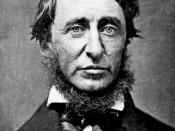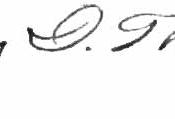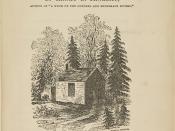Careful, observant, attentive, and partial to the security offered by solitude, the loon selects some lonely location on the borders of the lake far from the existence of men. Thoreau, in Walden, pursues the loon because it represents what Thoreau is himself searching for""the ability to be at home in two worlds, but also separate from both of them. To be able to reach a unity with nature and likewise successfully separate himself from society. However, he can't catch the loon because this objective is impossible to achieve.
Thoreau points out how extraordinary the bird is as he watches it dive underwater, yet he observes that the Loon seems to be as content underwater as on the surface: "How surprised must the fishes be to see this ungainly visitor from another sphere speeding his way amid their schools! Yet he appeared to know his course as surely underwater as on the surface, and swam much faster there."�
Similarly, Thoreau has arrived at Walden, a strange visitor from another sphere. The loon can be compared to Thoreau's own quest for complete integration in this foreign, natural world. The loon is "ungainly"� and the idea that the loon is a "visitor from another sphere" indicates that the loon is not only somewhat ill at ease, but very much unlike the other fish. It doesn't come from a different pond, but from another world entirely. "Yet," Thoreau says in the next sentence, "he appeared to know his course as surely under water as on the surface, and swam much faster there." The loon is a stranger who, unlike most strangers, knows "surely" where he needs to go and how to get there. Athough Thoreau is as surprised as the fish are by the loon's seemingly contradictory nature, his surprise mirrors his own...


